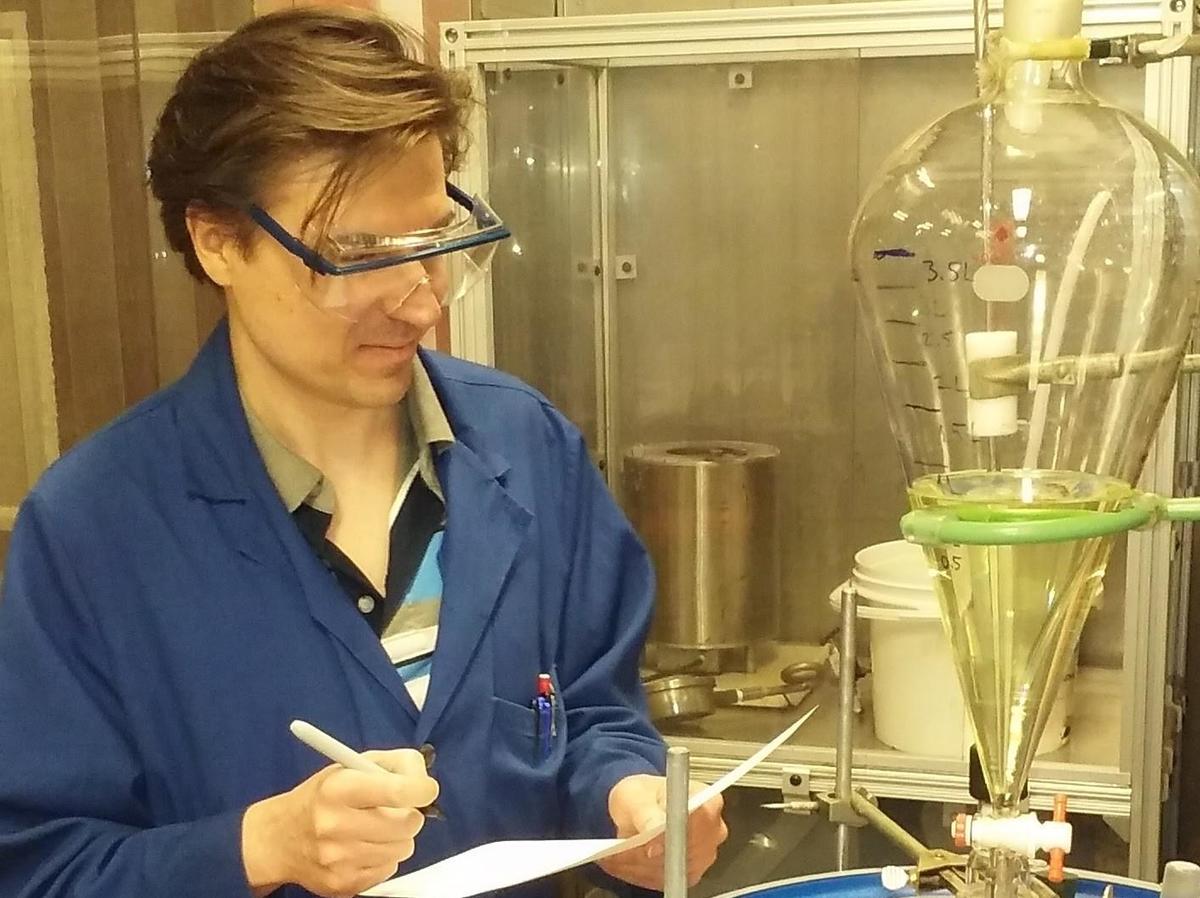In Sergiy Yemets’ world, waste materials are simply undiscovered treasures. As an organic chemist and specialist in the chemistry of natural compounds, Yemets came to NRRI in 2004 as part of a team to unlock the useful chemicals in birch bark being tossed aside at paper mills and lumber yards.
In that bark are bioactive compounds with anti-inflammatory, anti-bacterial and anti-viral benefits. The work of Yemets and the extractive chemistry team led to a birch bark chemicals manufacturing operation in Two Harbors, Minn., called The Actives Factory that markets the chemicals worldwide.
“Reducing the waste after biomass processing and creating new, value-added products is very satisfying work for me,” said Yemets currently a Senior Research Scientist. “I apply analytical chemistry to analyze the properties of the natural materials – mostly biomass-based materials -- and synthetic chemistry to modify them into new materials.”
NRRI’s Materials and Bioeconomy Group has four chemists working on a variety of projects. They have expertise in various chemical and physical analysis methods including liquid and gas chromatography, mass spectrometry, nuclear magnetic resonance, ultraviolet-visible spectrophotometry, and infrared spectroscopy.
“And now we’re expanding our analytical capabilities even more by adding a lot of new equipment,” said Yemets. “It will increase our ability to perform analysis and characterization of biochar and porous materials, syngas and gaseous substances, wood pyrolysis products and other materials.”
His current focus is on developing a new bio-based plastic material using the lignin from plant-based sources. The goal is to produce construction-grade thermoplastics from wood on an industrial scale. Lignocellulose is found in all trees (lignum is the Latin word for wood) giving plants shape and stability by strengthening the plants’ cell wall. Lignin is abundant but currently does not have many applications.
“It’s exciting to help this material find its niche in eco-friendly and sustainable manufacturing as a component of novel plastics, adhesives, coatings and more,” Yemets said. The thermoplastics development is a collaborative effort with industry and research partners across the country. Yemets works closely with NRRI’s hybrid poplar research team which is developing fast-growing trees for new opportunities in lignin production.
Tapping expertise
Beyond lignin research, Yemets is also involved in research on biochar, pyrolytic processes, wood protection technologies, controlled-release fertilizer coatings and more. The broad spectrum of projects means relying on others in NRRI and across the University system to access a variety of expertise and skills. Yemets works closely with UMD’s Advanced Materials Center, Swenson College of Science and Engineering and the Department of Mechanical and Industrial Engineering.
NRRI’s Quality Manager, Lisa Estepp, is especially helpful in documenting instructions and analytical procedures for standardization and quality control, while the Purchasing Specialist, Tammy Thomasson-Ehrhart, keeps the lab stocked with necessary supplies.
“Lisa and Tammy are always helpful, quick and thorough,” said Yemets. “I really appreciate that.”
Jazzed up
While Yemets enjoyed increased trail hiking and nature photography to pass the time over the past year of social restrictions, he’s looking forward to music venues opening up again.
“I like to play guitar and listen to old and new jazz music,” he said. “It will be really nice to listen to some live music when the restrictions are lifted.”
